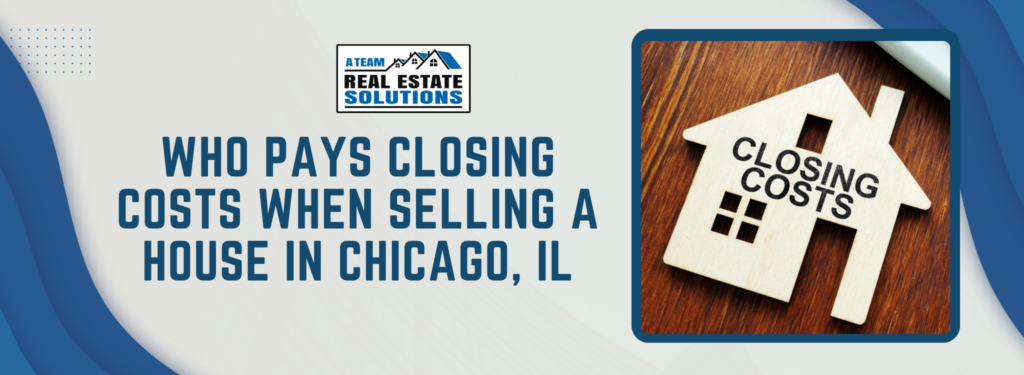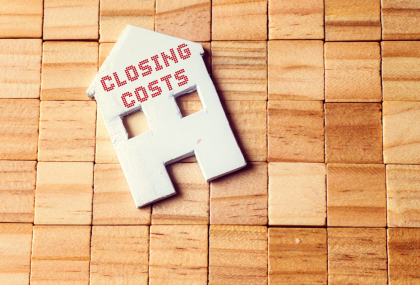
Understanding Chicago Closing Costs: A Seller’s Guide
Should you want to sell your home in Chicago, Illinois, you should know who will pay the closing costs. Usually, both the customer and the seller pay some fees, but the seller usually pays most of them.
What the seller needs to do: The seller generally pays the escrow payments, transfer taxes, real estate buyer commissions, and attorney fees. The transfer tax in Chicago can be a significant expense based on the property’s worth.
What the buyer needs to do: The buyer usually has to pay banking fees, loan origination charges, and homeowners’ insurance.
There is still a chance that some of these prices will change during the sale.
Shared Costs: Fees for title insurance and inspections may be split or worked out between the buyer and seller, based on how things work in the area and what they agree to.
When selling a house in Chicago, sellers can plan their finances better and avoid shocks during the sale if they know who pays the closing costs. The process goes more smoothly when you work with experienced home buyers and lawyers who know how much Chicago real estate closing costs.
How much does it usually cost for sellers in Chicago to close?
When selling a house in Chicago, IL, people should be ready for a number of typical closing costs. The prices can be different, but the most common ones are:

- Usually, between 5 and 6 percent of the sale price goes to the real estate managers. This is called the “commission.”
- Transfer Tax: Chicago has a real estate transfer tax that can make selling a home much more expensive.
- Title insurance is a way to protect yourself against future ownership issues. Usually, the seller pays for the buyer’s title insurance.
- Fees for an attorney: Hiring an attorney helps with legal paperwork and makes sure the sale follows the law.
- Taxes on the property and proration: The seller pays the taxes on the property until the close date. Any taxes that were paid ahead of time are divided.
- Escrow Account Fees: These pay for being in charge of the money during the sale.
- Lender Fees: If the seller still owes money on a mortgage, there may be fees to pay it off.
- Repairs and checks: Sellers will sometimes pay for repairs that are found during checks.
You can get a better idea of these prices by using a Chicago closing costs calculator. This tool makes it easy for sellers to see how much it usually costs to close on a house in Chicago. Knowing these average prices helps sellers make smart choices and plan their budgets.
What affects how much it costs to close a business in Chicago?
There are a lot of factors that affect how much it costs to close on a Chicago home:
Closing costs typically rise with the sale price of a home, as higher property values lead to increased transfer taxes and associated fees. Market conditions also influence these costs; in a seller’s market, buyers may be able to negotiate reduced fees. Both buyers and sellers can discuss credits or adjustments to various expenses, such as assessment and inspection fees. Additionally, mortgage lender requirements can affect closing costs through loan origination fees and lending charges, which may change the overall expense of paying off a mortgage. Fluctuating interest rates primarily impact buyers but can also influence the terms and timing of a sale.
Local taxes and county fees are another critical factor, particularly in Illinois, where tax rates vary by county and directly affect closing costs. Real estate professionals’ expertise and fee structure, such as agents and attorneys, can also impact the total expenses involved in a transaction. Proration adjustments frequently alter the final amounts owed for property taxes and homeowners’ insurance. Finally, depending on the specific situation, other costs, such as reconveyance or sheriff’s fees, may be necessary, further contributing to the overall closing costs.
Talking to a financial advisor or real estate professional can provide sellers with more information about how these factors affect closing costs in Illinois. Knowing about these factors will help Chicagoans who want to sell their homes be better prepared.
You can use a closing cost tool or call A Team Real Estate Solutions if you have questions about your closing costs or need help figuring out how much they will be. With the right help, planning to sell your Chicago home can be clear and easy.
How to Talk About Closing Costs in Chicago Real Estate
If you want to sell your home in Chicago, you should know how to talk about closing prices. Transfer taxes, legal fees, title insurance, and real estate professional commissions are some of the fees that are usually part of Chicago closing costs. You can better plan your spending if you know who pays the closing costs when you sell a house in Chicago.

In the Chicago real estate market, buyers and sellers often try to work out the closing costs. If sellers want to lower their out-of-pocket costs, they might try to get credits or discounts for closing costs. Agents for real estate help buyers know how much the process will cost and how to make the most of the market conditions.
As part of negotiations, you might ask for lower agent charges or ask the sale price to be lowered to cover some fees. Using the desire in the local real estate market can help sellers get a better deal. Whether you are buying or selling a home in Chicago, it is important to know how much the closing costs are usually and how to negotiate.
Can sellers negotiate closing costs in Chicago?
People who are selling their homes in Chicago often want to know if they can get the closing costs lowered. Yes, that’s correct. People who are selling a house in Chicago often talk about who will pay the closing costs. This is especially true when the buyer has more choices.
A lot of the time, owners will pay some or all of the closing costs to get the deal done. Transfer taxes, attorney fees, and agent payments are some of these costs that may add up. It’s important for sellers to know what closing costs buyers in Chicago expect them to pay. A good real estate professional can help sellers do this.
Negotiations can include refunds or concessions to lower the buyer’s closing costs, which can increase the chances of selling the home. Agents help buyers negotiate by giving them advice on how to set competitive prices and how much concessions will cost. Sellers should know the usual fees and how the market works to negotiate well during the sale.
What strategies can sellers use to negotiate favorable closing costs?
There are a few things that people selling their homes in Chicago can do to lower their closing costs:
Instead of dropping the price, sellers can offer credits that can be used to pay for the buyer’s closing costs. This makes people more likely to buy without cutting the price. Carefully change the listing price. Sellers can make the price a little higher to allow for price cuts that cover closing costs while keeping the net earnings the same.

- Talk about Agent fees: Most of the time, fees are set, but some sellers try to get discounts or rewards based on how well they do their job with their realtor.
- Ask to Split or Lower Fees: Depending on the market, sellers may ask buyers to split fees like title insurance or legal fees.
- Use the State of the Market: If the market is strong for sellers, you don’t have to make as many concessions. People who want to sell may need to be more open when the market is buyer’s.
For these strategies to work best, you need to know how much a normal Chicago closing costs and have home buyers who are good at negotiating. Sellers who know how to bargain well can have a smoother sale and more money.
How much leverage do Chicago sellers have when negotiating closing costs?
In Chicago, sellers’ ability to negotiate closing costs relies on how the market is doing, how interested buyers are, and how much competition there is. There is more power for sellers when demand is high, and buyers can often be asked to pay a bigger share of the closing costs. On the other hand, if the market is slow, sellers may have to make concessions to get people to buy. When more buyers are looking for a home, the seller’s situation gets even stronger, and they can make fewer concessions on closing costs. But if there is a lot of competition among sellers and a lot of homes for sale, you might need to offer credits or deals to stand out. Some sellers may also choose to lower the home price instead of paying the closing costs themselves, based on what buyers want most.
Knowing about specific costs in the area, like the transfer taxes and fees in Chicago, helps sellers decide what costs they can discuss. A real estate buyer with a lot of experience can also be beneficial in this process. They can give the seller expert tips and strategies that will help them negotiate better. If sellers know how to take advantage of a seller’s market, they can often lower or even get rid of many closing costs. Because every transaction is different, sellers must carefully consider buyer interest and price options to develop the best plan. People who are selling their homes can save money and make the process easier if they bargain well.
Reducing Your Closing Costs as a Chicago Home Seller
There are a few closing costs that people in Chicago who want to sell their homes should know about. You can save money if you know about these fees and how to get them lowered. Transfer taxes, attorney fees, real estate buyer commissions, house inspection and appraisal fees, loan origination fees, escrow payments, property taxes, mortgage lender charges, and title insurance are some of the closing costs that people in Chicago usually have to pay.
Key Ways to Cut Down on Closing Costs
Talk to buyers and real estate professionals. Real estate professionals with a lot of experience can get sellers to agree to lower closing costs or give credits.
Ask for Seller Credits: Giving buyers credits for inspection or appraisal fees can lower total selling costs.
Look at a Few Different Services: To get better deals on lawyer services, title insurance, and trust accounts, look at different prices.
Avoid Extra Fees: Carefully look over all of the expected fees and question any that don’t make sense or seem too high.
Use Professionals with Experience: Real estate professionals who know the Chicago market can help you lower the closing costs for selling your home in Chicago, IL.
Are there ways to lower closing costs when selling a house in Chicago?
There are a few ways for Chicago home buyers to lower their closing costs:

- Talk things over: Talk about fees, profits, and buyer concessions with your real estate buyer.
- Find ways to get credits and discounts: Instead of paying for inspections, appraisals, or fixes up front, ask for credits.
- Look at all the fees: Make sure you don’t pay too much for attorney, escrow, and loan processing fees.
- Take care of the transfer tax. The real estate transfer tax in Chicago can make up a big part of the closing costs. Buyers and sellers may agree to split this cost or talk about who pays it.
- Get inspections before the sale: Getting your own home inspected before you put it on the market could save you a lot of money on repairs or concessions later on.
- Talk About Title Insurance: The buyer and seller can sometimes agree on who pays for title insurance, which can save them money.
These tips will help you sell your home in Chicago, IL for more money, less costs and more easily. We buy houses fast in Aurora, Bartlett, Bedford Park, Bellwood and all across Chicago. We buy houses as-is. You can read about the taxes you must pay when selling a house. You can read our reviews and also the process of how we buy houses.
What common closing cost mistakes should Chicago sellers avoid?
By not making common mistakes, you can avoid extra costs and delays. Here are some common mistakes:
Wrong figures: If you don’t get clear figures from your lawyer or real estate professional, it can be hard to stick to your budget.
Ignoring Prorations: It can cost you extra if you don’t understand how property taxes and unpaid interest are split.
Not Knowing the Rules for Transfer Tax: If you don’t know who in Chicago has to pay transfer tax and how much it is, your costs may go up.
Not Enough Information About the Loan or Credit Report Fee: Sellers sometimes pay fees that should have gone to buyers because they didn’t check carefully.
Paying too much for attorney or escrow fees: If you don’t compare fees, you might end up paying more than you need to.
Skipping Closing Cost Calculators: Sellers may not fully understand the costs involved if they don’t have tools that show them all.
How can I accurately estimate my Chicago closing costs?
Having accurate predictions helps you stick to your budget and avoid surprises. Do these things:
Real estate professionals and lenders can give you rough estimates based on how the market is doing right now and the facts of your loan. Use a closing cost estimator that works in Chicago. Some of these tools are city transfer taxes, property tax prorations, and standard fees.

- Learn About Common Fees
- Transfer Tax Lawyer Fees
- Land Title Insurance
- Fees for opening an escrow account and getting a loan
- How to Divide Up Property Taxes
- Interest Already Paid
To effectively manage closing costs, it is recommended that you begin by getting written quotes from all service providers, such as lawyers, appraisers, and inspectors. This ensures that everything is clear and prevents charges from coming as a surprise later on. You should also find out how prorations will work. Knowing how you and the buyer will split the taxes and utility bills at closing can help you better plan for your final financial responsibilities.
Also, it’s smart to set aside a small amount of money if you have to pay for something unexpected. Unexpected or last-minute fees can happen. Having extra cash on hand will help you cover these costs without worry. You can make the closing process go more easily and avoid unpleasant financial surprises if you plan ahead and stay informed.
The Role of Real Estate Professionals in Chicago Closing Costs
If you want to sell your Chicago home, you should know about the closing costs. Agents who help people buy and sell homes are very important when it comes to controlling these costs. Their help can change the closing costs of selling a house in Chicago. These costs can include fees like the transfer tax, legal fees, and the agent commission.
In Illinois, sellers usually pay a part of the sale price to the real estate buyer as a commission. This is especially true in the Chicago area. This fee is often the most significant part of selling a house in Chicago. In addition to commissions, Illinois real estate professionals help buyers understand other costs of closing a house, like title insurance, escrow fees, and other fees.
A good real estate buyer helps sellers handle these costs clearly and quickly so there are no surprises at the close. When working with lawyers and escrow officers to ensure fees are handled properly, the seller benefits from the agent’s knowledge. Anyone selling a house in Chicago can better plan their budget and avoid surprises if they know all of the closing costs.
Can a real estate buyer help negotiate lower closing costs?
To manage closing costs effectively, it’s essential to start by obtaining detailed quotes in writing from all service providers involved, including appraisers, inspectors, and attorneys. This ensures transparency and helps avoid any surprise charges later in the process. Additionally, take the time to learn how prorations will be handled—understanding how you and the buyer will split taxes and utility bills at closing can help you better anticipate your final financial obligations.
Setting aside a small financial cushion is also wise for preparing for unexpected expenses. Last-minute or unforeseen fees can arise, and having extra funds available will help you cover these costs without added stress. By planning ahead and staying informed, you can navigate the closing process more smoothly and avoid unnecessary financial surprises.
What questions should I ask a Chicago real estate buyer about closing costs?
If you want to sell your Chicago home with the help of a real estate buyer, you should ask the right questions to fully understand the closing costs. Think about these questions:

- How much does an agent usually get paid in the Chicago area?
- Is there anything else I need to pay besides the commission?
- How are legal fees and transfer taxes handled when a house is sold in Illinois?
- Could you explain how much trust fees and title insurance cost when I sell my house?
- Do you help people get selling credits or lower closing costs?
- When do I have to pay these closing costs?
- Could you give me an idea of how much it takes to close on a house in Chicago?
- What do I have to pay for, and what does the customer have to pay for closing costs?
Preparing for Closing: Essential Steps for Chicago Home Sellers
What do I need in order to close in Chicago?
In Chicago, you need to gather a number of important legal papers in order to close a real estate deal. The deal goes more smoothly with these papers, and they protect you during the change of ownership.
Some common papers are:
- Title insurance protects you from problems that might arise when you own property.
- Paperwork for an escrow account: This shows how much money has been set aside for fees, taxes, and closing costs.
- Documents needed to start a loan: These are from your mortgage lender and describe the terms of the loan.
- Reports on home inspections and appraisals: Check the home’s condition and worth.
- Property tax records were needed to figure out the final payments.
- Agreement to buy and addenda: The deal between the buyer and the seller.
- Form HUD-1, or Closing Disclosure for settlement, lists all the closing costs in Chicago, IL, such as attorney fees and trust fees.
Real estate lawyers often help make these papers and look them over. When selling a house in Chicago, IL, making sure everything is in order before the closing can help avoid delays or extra costs connected to closing costs. Ask your lawyer or real estate buyer for a full list of papers. They can tell you what the rules are for your sale and in your county.
What will happen if I can’t pay the Chicago closing costs?
Most of the time, closing costs in Chicago are between 2% and 7% of the sale price. Here are some things you can do if you can’t pay these fees:

To effectively manage closing costs, start by obtaining detailed quotes in writing from all service providers involved in the transaction, such as appraisers, inspectors, and attorneys. Having written estimates ensures clarity on expected expenses and helps prevent any surprise charges later in the process. It’s also important to understand how prorations will be handled at closing. Knowing how you and the buyer will split property taxes, utility bills, and other ongoing expenses allows you to accurately anticipate your final financial responsibilities.
In addition to careful planning, it’s wise to set aside extra funds to cover any last-minute or unexpected fees that may arise during the closing process. These unforeseen costs can add up quickly, and having a financial cushion in place will help you manage them without added stress. By staying informed and prepared, you can navigate the closing process smoothly and avoid unnecessary financial surprises.
It’s important to know who pays the closing costs when you sell a house in Chicago, IL. Most of the time, the seller pays fees like trust fees, attorney fees, title insurance, and transfer taxes. If the market is right, though, negotiating can make buyers pay more for some things.
Helpful Chicago, IL Blog Articles
- Who Pays Closing Costs When Selling A House In Chicago, IL
- Who Pays Taxes When Selling a House in Chicago, IL
- Filing A Quitclaim Deed For Chicago Real Estate
- Sell Your Chicago Home To A Developer
- Selling A Home That Needs Repairs in Chicago, IL
- Can I Sell Half Of My House In Chicago, IL
- Selling Your Chicago Home After Three Years
- Selling Distressed Property In Chicago, IL
- Understanding FSBO Costs In Chicago, IL

